
My college is being paid for by financial aid but it will be ending this year. I still have another year before I graduate and get my bachelors degree. Now I am faced with the fact that I need to find a way to pay for another year of school. Neither my mother nor my father earn enough to pay for my school and no entry level position I have ever had has paid me a wage where I could pay day-to-day expenses and save for school.
I am twenty-one years old and I am a proud daughter of two immigrants. My mother and father crossed the border twenty-four years ago. Today both my parents are citizens and work as truck drivers. When I was six years old my parents divorced and my mother worked night and day to pay for the food and the roof over our heads. My brother and I are the first generation of college students.


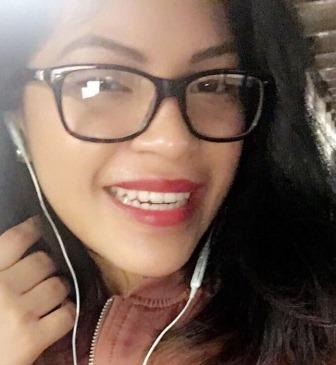
Understanding my mother’s struggle to get an education, makes it clear that I would not be able to pay for college if I did not qualify for financial aid like the Tuition Assistance Program (TAP). Although my mother’s experience differs from mine, I know if she had access to opportunity programs or financial aid to help her pay for education, she would have finished. I recently quit one of the two jobs I had at the beginning of the semester because my jobs were taking a toll on my academic performance. It is stressful to manage time when you constantly must decide on whether you need to work to have money to pay for groceries or to use that time to study for an upcoming exam
As first-generation college students, my mother always encouraged my siblings and I to continue with our education to have a financially stable future, nothing like what we experienced as children. My mother valued the little education she received in her hometown in Mexico, and wished to continue her education as a college student but like most of her neighbors, she had no money for it. Although against all odds, my mother followed her passion to learn and enrolled herself in a public college without any financial support from her parents.. She barely passed the first year and failed the following year; whenever I ask her what held her back from going back to school, she explained the lack of resources. Students should not carry such a financial burden before they are even given the chance to better themselves.


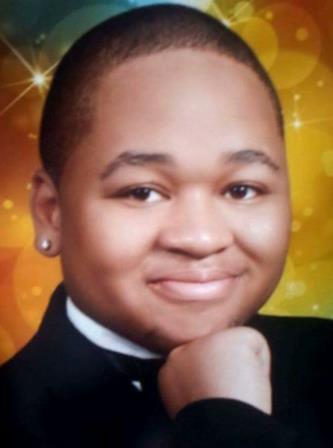
In the beginning of August, me and my mom started talking about the fall semester of college and how to pay for it. We looked at the cost and my mom was worried because it was over $8,000. I told her that the Tuition Assistance Program (TAP) would cover the costs associated with college, but not everything.
Then we drove to the college and we spoke with one of the representatives at the financial aid office. She told us “The financial aid would not cover everything”. My mom then asked “How am I supposed to pay it” and the lady said “I don’t know.” When I got home that day, my mom and I had a talk about what to do and we decided to take out loans. The problem about that is I won’t be able to work on my career because I have to find a job ASAP and work for who knows how long to pay off the loans. My career will be on hold for weeks, months, or even years.



I use financial aid to pay my tuition in college. I qualify for the Tuition Assistance Program (TAP). However, the TAP award is too low. It should be more. I have to buy books, food, and pay for transportation costs and housing.
This semester, my textbooks cost almost $300 and my metrocard costs $120 per month. Because I am a full-time student in college, it is not possible to work. I hope I am going to graduate on time so that I do not run out of TAP money.


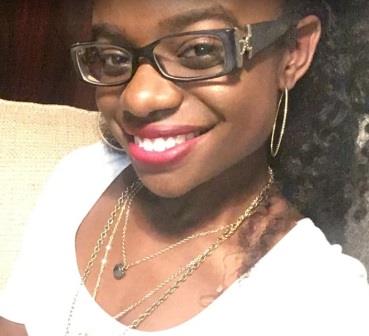
As an Environmental Studies major, I’m happy to have the experience of pursuing my passion and learning about what I love. Paying for college is my biggest hassle. My parents “make too much” for me to be able to get financial aid so I’ve been forced to take out private and unsubsidized loans to pay my tuition. Because of the ridiculous interest rates of the private loans, I watch my balance increase every month. With each increase, I wonder how I will be able to pay these loans off and how long it will take me. As someone who wants to pursue a graduate degree, I also wonder if my current debt will affect my ability to do so and how I will pay for it. I had to take a semester off 2 years ago because of a hold on my account due to unpaid fees that I was not able to resolve in time.
Like many other students, I’ve had to get a job on campus to earn money to pay for tuition, textbooks, a monthly metrocard, buy food, and pay bills. Despite what FAFSA has determined about my family’s financial standing, depending on them to provide me with money for all these expenses is not possible, especially considering the fact that I’m one of two children currently in college. While I feel that learning to manage time is an important skill to have in college, I don’t believe that struggling to stay financially afloat is a struggle that college students should have to face. I hope to see a change in what is considered low-income and a greater and more comprehensive approach to helping students pay for education as it should be a right and not a privilege.



I am currently relying on my parents’ income to support me, but to be honest, a lower-middle class family supporting two children in college is hard. So I am forced to work in order to pay for school.
My schedule is so tight because I must work until 12 or 1 AM for a restaurant and still take a full-time course load to qualify for the Tuition Assistance Program (TAP). I am also paying for my own textbooks. As a student who majoring in biology, textbooks are a major burden on my wallet. I am also paying for my own transportation.



I’m a student at Queensborough Community College. I work in a pet store as a full time employee. It’s hard for me to maintain my job and study, but I believe hard work will gift me a brighter future. I get a little help from the Tuition Assistance Program (TAP) and some monetary help from my mom. My mom said that she will soon stop helping me because she wants me to be self-sufficient. She does not make that much money and is also raising my half sister on her own.
I will be in a horrible situation if the tuition increases or if I get less financial aid. I wish to see an America that treats all of her children equally regardless of social status or economic level.


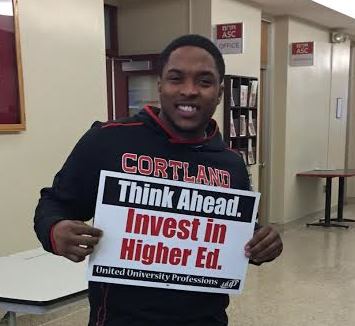
I was born and raised in New York City where I have seen violence firsthand as a teen, and soon figured out that higher education was my ticket to success. During my senior year in high school, my mother was laid-off from her job and my hopes for affording a college degree became a bit dimmer. I chose to attend Tompkins County Community College because of its affordability, and then transferred to SUNY Cortland. The financial aid package I receive for SUNY Cortland covers a majority of tuition. However the additional costs force me to work two jobs, one at a local grocery store and the other as a tour guide on-campus. The additional costs such as transportation, housing and food would have to be satisfied by my long working days, and two separate student loans. I accept little financial help from my parents to lessen the burden on their shoulders.
I am a psychology major and will be a first-generation graduate in my family. My post-graduation goal is to start a non-profit organization in New York City dedicated to adolescent outreach and empowerment. I believe that if you’re lucky enough to be in college, you should never take it for granted and make use of the opportunity. I am from a troubled area and would like to incite a college culture within youth from my community, and enlighten them to the opportunities that set me on a path to success.


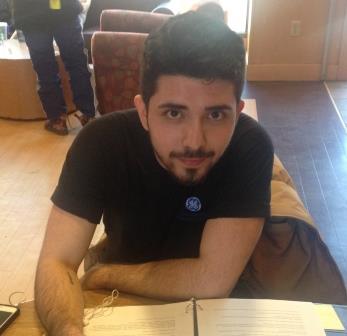
I pay for school personally. I actually get short term loans to try to help my credit. So there’s interest, which is currently at 11%, that I’m paying through VISA, and this is at a monthly rate. I take out over $5000 a year, and I pay that off monthly.
I work anywhere from 32-42 hours a week. I drive back and forth and my money is going to gas. I’m paying for textbooks on top of paying for loans. I also pay rent, and my cellphone bill. In order for me to have a car, because we just can’t afford cars like that, I had to take out another loan and buy a car, a used car and I pay that off monthly too. Everything just kind of adds up to a point where I’m literally just working check to check at this point.


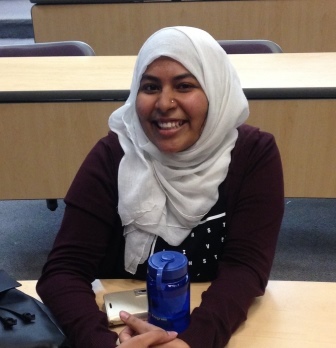
Luckily, I do not have any student loans as of now but, it does seem like something I might need in the future. One reason I am actually in college I would say is because the Educational Opportunity Program (EOP) exists and the support they provide. Right now, I’m not taking any loans, but I am struggling. I am a commuter so I have to actually spend two-three hours sometimes commuting depending on when I miss a train or something.
Either I spend more time, or I spend more money. So, if you’re not in economic debt, then you are in mental debt. I am totally, I don’t function half of the time. I’m so tired when I come to class, I’m just trying to stay awake. If I didn’t have to commute and if I could live on campus and get up and go to my classes it would be awesome. I’m pretty sure my grade would not suffer as much as they do right now. It’s hard to balance that time.










